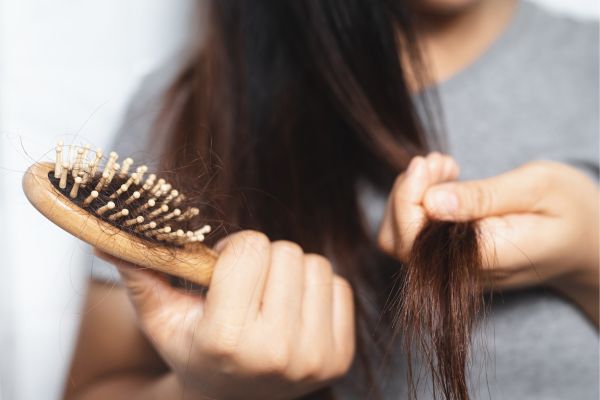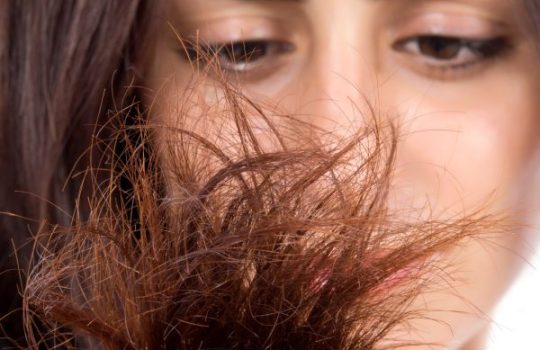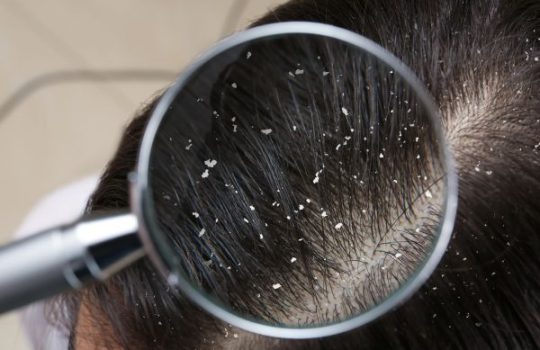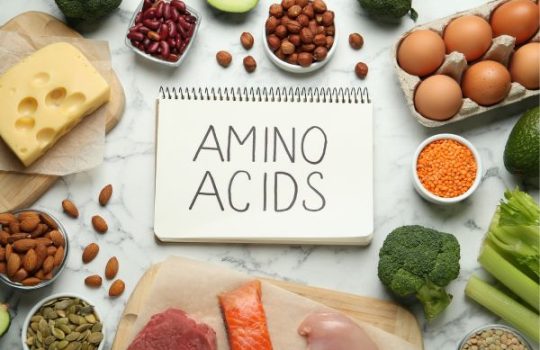The 3 best minerals for hair growth
The health and beauty of hair depends not only on hair care, but also on what we consume. Indeed, an unbalanced diet has a negative impact on the growth and health of the hair fiber. Among the essential nutrients for hair, minerals play an important role, they nourish hair follicles and stimulate growth. Discover our guide to help you understand which are the best minerals for hair growth and how to integrate them into your diet!

Minerals for hair growth: the role of iron
Iron is a very important mineral for hair health and growth. It helps produce hemoglobin, a protein found in red blood cells that carries oxygen throughout the body, including to hair follicles. A sufficient iron intake ensures good oxygenation of the scalp, which promotes growth and strengthens the hair fiber. Additionally, iron deficiency can lead to anemia, which may be associated with hair loss.
Include foods rich in iron in your diet
Many foods contain iron, so it is relatively easy to include this mineral in your daily diet to maintain its levels in the body. Here are some examples :
Red Meat: Red meat is an excellent source of highly bioavailable iron, meaning it is easily absorbed by the body.
Lentils: Lentils are a valuable source of iron, especially for those following a vegetarian or vegan diet.
Spinach: Although the iron in spinach is less absorbable than that from animal sources, accompanying it with vitamin C can help improve its absorption.
Pumpkin seeds: These seeds are a good source of iron. You can add them to your salads, soups or eat them as a snack.
Quinoa: Quinoa is an iron-rich superfood that is an excellent source of protein.
Oysters: Oysters are a good source of iron that is easily absorbed by the body.
Tofu: For those following a vegetarian or vegan diet, tofu is an ideal source of iron.

Minerals for hair growth: zinc
Zinc plays an important role in the growth and repair of hair tissue. It also helps keep the oil glands surrounding hair follicles healthy. A zinc deficiency can lead to hair loss because without this mineral, the structure of the proteins that make up the hair follicle can break down. Zinc also plays a role in protein synthesis and cell division, two processes essential for hair growth.
Food sources of zinc
Here are some foods rich in zinc that you can include in your diet:
Meat: Beef, pork and lamb are particularly rich sources of zinc.
Seafood: Oysters are the food richest in zinc. Other seafood like crab and lobster also contain it.
Seeds: Pumpkin, flax and sesame seeds are good sources of zinc.
Legumes: Lentils, chickpeas, black beans and peas are all rich in zinc.
Dairy products: Cheese, milk and yogurt are sources of zinc.
Grains: Whole grains, including brown rice and oats, can be a good source of zinc.
Nuts: Cashews, almonds and pecans are also sources of zinc.

Minerals for hair growth: magnesium
Magnesium contributes to the production of proteins, including keratin, which constitutes almost 90% of hair. In addition to this, it helps regulate the hair growth cycle by stabilizing the hair follicles. A lack of magnesium can lead to hair loss or a weakening of its structure.
Include magnesium in your diet
Here are some foods rich in magnesium that you can incorporate into your diet:
Green leafy vegetables: such as spinach and cabbage.
Fruits: such as bananas, avocados and apricots.
Nuts and seeds: such as almonds, sunflower seeds and chia seeds.
Legumes: such as beans, lentils and chickpeas.
Whole grains: such as quinoa, brown rice and oats.
Dark chocolate: a delicious source of magnesium.
Dairy products: such as cheese, milk and yogurt.
Fish: such as mackerel and salmon.
Other minerals for hair growth
In addition to iron, zinc and magnesium, other minerals for hair growth should be known. Copper, for example, contributes to hair pigmentation and can help prevent premature graying. Selenium is essential for scalp health and can help prevent hair loss. Silicon is known to strengthen hair and make it shinier.
Sulfur is also an important mineral for hair health because it helps prolong the growth phase and is necessary for the production of keratin, an essential protein for hair health. Finally, calcium, which is well known for its contribution to bone health, also plays a beneficial role in hair growth.






